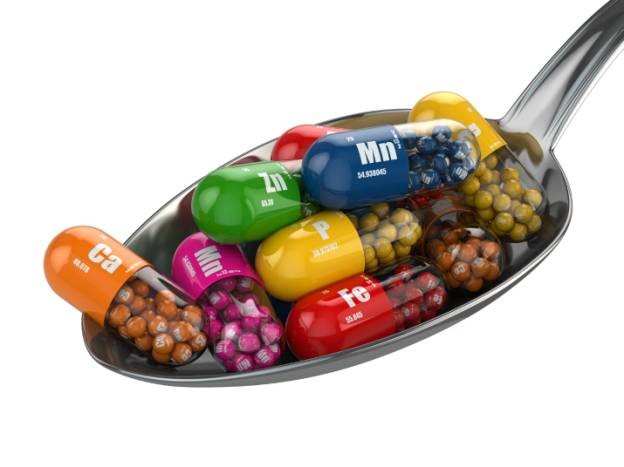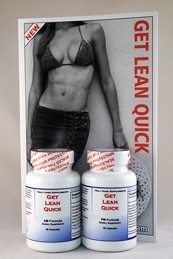|
Free Weekly Diet and Fitness Tips
Full of useful information, exercise tips, diet
tips and inspiration for us all, join today!
Click Here For Free Diet And Fitness Magazine
Skip the Dietary Supplements When You are Healthy

Skip the Dietary Supplements When You
are Healthy
First and foremost, over half
the people in the U.S. take dietary supplements on a regular basis. And the
main reason for taking supplements is their belief that dietary supplements
help improve or maintain their health.
Survey Results
Most of all, a survey was
conducted to study the use of dietary supplements. And, this survey collected
data from 27,000 American adults over the age of 20. Now, in the survey, participants, who happened to be
generally healthy, answered questions about their diets and their dietary
supplements. And, the results of the study were published in the April 2019
edition of the Annals of Internal
Medicine.
Most of all, the study reported that over 50 percent of the survey
participants used at least one supplement, while more than 33 percent used
multivitamins. Furthermore, those who took dietary supplements were more likely
to be female, white, have high levels of education, and had high income. Also, they were more likely to
follow a healthy diet and lead a physically active lifestyle.
Commonly Used Supplements
By and large, the survey
found that the most commonly used dietary supplement was vitamin C, followed by
vitamin E, calcium, and vitamin D.
Natural Vitamins and
Minerals Better than Supplements
Meanwhile, the study also
found that vitamins A and K, along with magnesium, zinc, and copper were
associated with lower risk of death from heart disease or stroke. In addition,
these vitamins and minerals were linked to an overall lower risk of dying in
the average six years of follow-up after the survey. Paradoxically, this
linkage to lower risk of death was only true when the vitamins and minerals
were ingested from foods and not from taking dietary supplements.
In addition, the study found
that taking a thousand milligrams of calcium supplements daily was linked to
increased risk of death. On the other hand, there was no linkage to increased
risk of death when the calcium was ingested from foods.
In summary, the study found
that taking dietary supplements provided no benefits to the generally healthy
survey population. In fact, there is no need to take dietary supplements when
eating a healthy balanced diet. On the other hand, dietary supplements are not
a substitute when you donít eat a healthy balanced diet.
The Problem with Dietary
Supplements
Most noteworthy, itís not
clear why vitamins and minerals from supplements donít provide the same
benefits as the vitamins and minerals found in food. It may be that while the
body can regulate and limit absorption of nutrients found in food, the body
canít do the same with concentrated nutrients found in supplements.
When to Take Supplements
So, if you are healthy there is no need to take dietary
supplements. On the other hand, if your medical provider reports deficiency in
certain nutrients, then taking supplements,
recommended by a medical provider, is the
right thing to do.
In addition, there are times
when vitamins and mineral supplements are necessary and important. For
instance, anyone following a vegan diet may not get enough omega-3 fatty acids,
vitamin B12, and vitamin D.
Also, the trend to protect
yourself from the sunís rays and staying out of the sun for extended periods of
time results in not getting enough vitamin D naturally. Consequently, vitamin D
supplements may help fill the void.
In summary, it is best to get
your vitamins and minerals from your diet. However, if that is not possible,
taking dietary supplements is the next best thing.
Need for Supplements as
You Age
Also, as people age, their
supplement needs change. For example, as people enter their 50s the following
changes are typical
1. First, an acceleration in bone loss
2. Also, the existence of more unhealthy bacteria inside
the body
3. Lastly, plaque in the arteries
And, as people enter the 60s:
1. First, there is an increased risk in dementia
2. Next, the likelihood of vitamin B12 deficiency
3. Finally, digestive systems donít work so well
And, as they enter the 70s:
1. First, difficulty in fighting infection
2. Next, a deterioration of muscle mass
3. As a result, a weaker immune system
Therefore, the type of
supplements needed changes with age. For example, you may need vitamins A, B6,
B12, C, D, E and K. And in terms of minerals, you may need more calcium,
magnesium, iron, and zinc. Also, supplement needs depend on the sex. For
example, women may need calcium to help strengthen their bones. Also, they may
need vitamins D3 and K2, as well as magnesium.
On the other hand, men over
50 may also need calcium, vitamin D, vitamin B12, and zinc. Now, vitamin D is
needed for the body to absorb calcium. While vitamin B12 is needed for creation
of red cells, neurological function, and synthesis of DNA.
Exercise
While diet and supplements go
a long way to be healthy, people still need to augment them with a regular
exercise program. And thatís true of people in all age groups, including the
elderly. However, the elderly need not exercise as much as the younger folks. Regrettably, for a variety of reasons, many of the
elderly do not exercise as much as they could. However, there are ways for them to exercise in
their homes.
Takeaway
To conclude, a good diet and
a regular exercise program helps you stay healthy. And, if you are healthy,
there is no need to take dietary supplements. Instead, get those vitamins and
minerals from your food. On the other hand, as you age or for a variety of
other good reasons, dietary supplements may indeed be necessary.
Free Weekly Diet and Fitness Tips
Full of useful information, exercise tips, diet
tips and inspiration for us all, join today!
Click Here For Free Diet And Fitness Magazine
Disclaimer: The information presented on this website is
intended only as guidelines. The instruction and advise represented herein is not intended as a substitute for medical
or other professional counseling or training. Consult your physician before starting on any diet, exercise program or
supplements.
|





